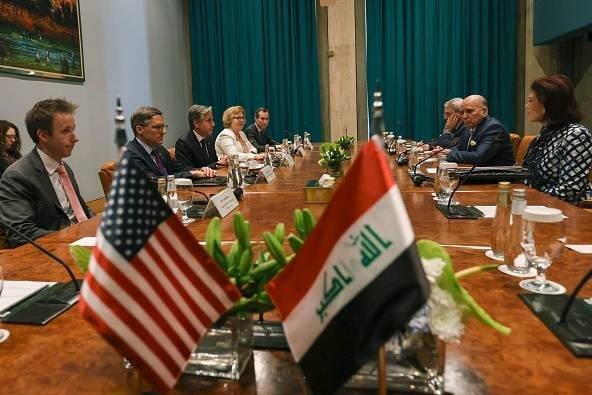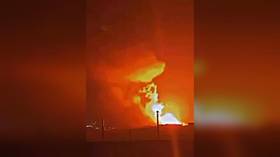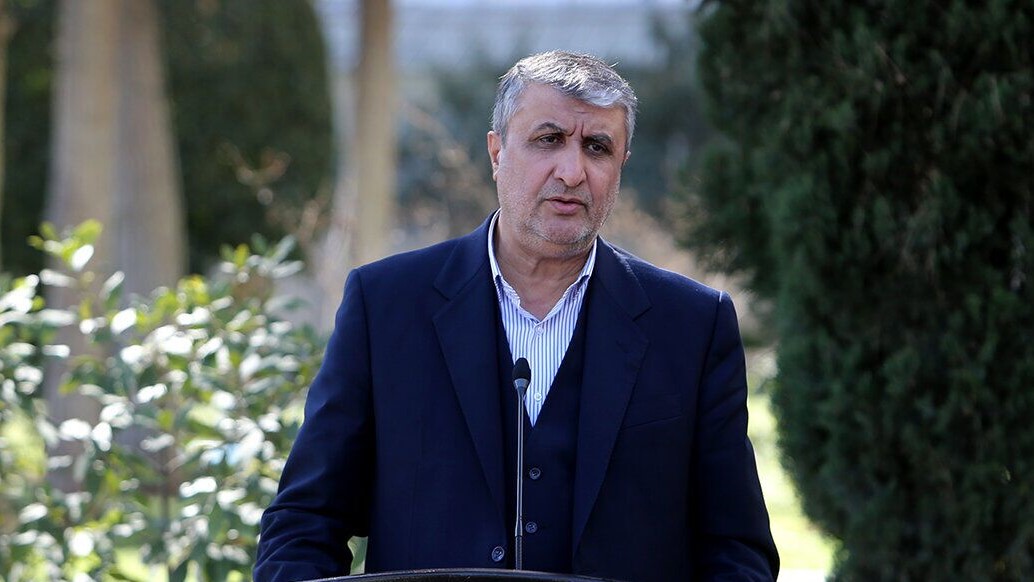NOVANEWS
In the background of this today marks the 34th anniversary of the 1979 Islamic revolution that forged the independent Islamic Republic of Iran. Rallies celebrating Iran’s independence from Western hegemony are taking place in every city across the country with millions of supporting citizens.
Press TV has interviewed Mohammad Marandi, Professor at University of Tehran, Tehran about this issue. The following is an approximate transcription of the interview.
Press TV: What really made Iran’s revolution as you know yourself very unique with the fact it was so popular. First of all, what made it so popular at the time and has it been able to maintain that aspect of it up until now, three decades on?
Marandi: I think what made it unique at first is that is was so popular itself. During the revolution in all cities there were rallies. And even in small villages people would rally just like now in Tehran we have a rally, but we also have simultaneous rallies throughout the country in all major and minor cities.
I think perhaps one of the reasons why the revolution was so popular was because the country was under a sort of universal hegemony, meaning that the United States especially had both a economic hegemony over the country, military, political, social and cultural.
So, peoples’ culture and religious beliefs were insulted through the regime that was backed by the United States – The way in which society was structured was again in line with Western social policies.
The military in Iran was completely dependent upon the United States and as we saw when the revolution happened and the Americans left, none of the weapons were usable and it took years for the Iranians to grow independent, to be able to repair the machinery and the weapons that they had that they owned, but were not allowed to touch before the revolution.
Of course, the country was dependent at all levels. The Iranian people being a dignified people who wanted independence at all levels, they could not tolerate this anymore.
And perhaps the most important factor was a very high ranking, the most high ranking religious figure in the country who was seen by everyone as pious and just, courageous and who stood above everyone else by far, he was there to unify all segments of society.
It was an extraordinary revolution because I don’t think that in human history even now when we look at the revolutions that have taken place in different countries in the region you don’t see such rallies taking place on a daily basis for months, all across the country.
Press TV: We know of course and you know very well that back in 1953 when the Shah fled for the first time, the CIA carried out a coup d’etat against the them elected Prime Minister Mohammad Mosaddegh – the CIA has confirmed that it had a role in that coup d’etat. And then 25 years later the Shah was in the same situation again.
Right then, we had this CIA analysis concluding and I’m quoting, “Iran is not in a revolutionary or even a pre-revolutionary situation”. And then in 1978 the US National Security Advisor Brzezinski called the Shah and told him the US would back him to the hilt.
So do you think revolution did come as a shock and surprise for Washington at the time and up until now it’s still trying to come to terms with it?
Marandi: Absolutely. I think that is something that the United States has a problem with even today.
Back then when the Americans and the British overthrew (Mosaddegh) their dominance in this country began – the Americans alongside the British, until the revolution itself. Yet they never could tell what was going on in Iranian society despite the fact that they had tens of thousands of people – just Americans; the British and other foreign nationals were here in very large numbers as well. Despite that they were completely unprepared to understand what was going on in Iranian society.
34 years now after the revolution we see the same problem, if not worse – it’s just as bad. The United States thought that by helping Saddam Hussein; the Europeans by giving him chemical weapons to carry out a mass slaughter against innocent civilians, Iranians, that they could force the Iranian people to their knees.
Or they thought that through sanctions and embargoes by trying to block the Iranian central bank, what the Americans and the Europeans are attempting to do to prevent Iran from importing and exporting – even importuning food stuffs and medicine because of the central bank being shut down. People have died as a result so they have blood on their hands in this regard as well.
The hope is that by putting pressure on Iranian people, by making people suffer, that people would turn against the Islamic Republic of Iran. Again they miscalculate completely.
In the poll that was discussed earlier carried out by the Americans and Gallup shows clearly that the vast majority of Iranians actually blame the United States, the Europeans and their allies.
But, unfortunately they don’t seem to learn from their past mistakes. What they actually do is they not only unify the Iranian people, but in the eyes of world public opinion they show the Europeans and the Americans show themselves to be quite uncivilized -the regimes; not only with regards to their behavior towards Iranians, but also their constant invasions of countries like Iraq and Afghanistan; and then creating civil war in Syria; bombing Libya; going into Mali and so on and so forth. The list goes on and on.
But this is a key point that you’ve mentioned. The Western regimes, meaning that specifically, they do not seem to understand Iran; and they don’t seem to understand any of any part of Asia and West Africa because they couldn’t see the revolution in Egypt coming nor in Tunisia.
And they miscalculated in Syria, they supported the most despotic, cruel extremists yet again they failed.
So, this constant miscalculating is something that ultimately will I think bring their downfall I think at least in this part of the world.
Press TV: It is very hard not to ask the question of how right now on the verge of the 34th anniversary of the Islamic revolution the US has come forward, especially we have John Kerry the new Secretary of State, we have Chuck Hagel; these two people are being seen as in the United States administration that view a more favorable position when it comes to Iran and they did say that we are for direct negotiations with Tehran.
Basically, how are you seeing that offer, do you think that this does show that the United States has changed its position and is trying to develop some kind of relationship with Iran on an equal basis?
Marandi: Well, I think what’s important is how the United States behaves rather than what it says.
In the past the Iranians on a number of occasions they have shown willingness for approaching under equal terms, in other words as long as the United States respects Iran.
In the 1990s for example Iran awarded Conoco oil company an oil field in Iran. The United States slapped sanctions on Iran in return. Or later on when President Khatami tried to create a favorable atmosphere with Western countries and the United States, Iran was called the axis of evil.
On each and every occasion that the Iranians did show goodwill to the United States despite its many grievances that Iranians have – Iranians believe that many of the deaths in the Iran Iraq war, the hegemony of the Shah that the United States and the Europeans were behind it.
But when the Iranians did show goodwill to resolve the stand-off situation, the United States betrayed Iranian trust in return, or betrayed the Iranian goodwill.
For example, in the case of the Tehran Declaration, Obama wrote to the Brazilian president that if an agreement is reached within a certain framework he would accept it. When the agreement was signed and it did fall within that framework, he immediately went and pursued new sanctions and effectively slapped the president of Brazil in the face as well as that of the prime minister of Turkey because he promised them that he would agree to the Declaration if it was signed.
So the Iranians do not trust the United States. On the other hand, the United States and the Europeans, the sanctions that they’ve imposed upon the Iranian people are basically to hurt ordinary Iranians and make Iranians suffer. And so we do not see any goodwill at the moment.
If the United States changes its policies, if it makes a serious goodwill gesture then Iranians can begin to take them seriously.
But until then, words are just words as long as they are trying to prevent Iran from importing and exporting, trying to make Iranians lose jobs, this will not work.
In fact I think that despite the fact that this hurts Iranians it hurts the Americans more and the Europeans more than us because it show s them as being vicious, uncivilized governments, it makes them unpopular among Iranians and people beyond. And it makes people more resilient.
I think the rallies in Tehran show that that sort of behavior is not going to change the way the Iranian people behave and react and they see it as quite immoral.
But again, if the United States changes it policy, if it behaves in a more civilized manner and in a more reasonable manner towards the Iranian people then obviously the Iranians would be quite willing to move forward to a solution.



